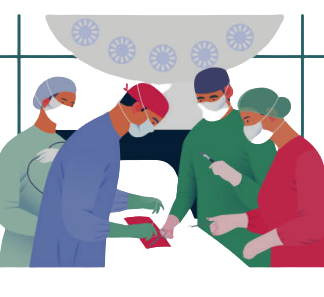Embarking on a medical career in Sri Lanka necessitates a deep understanding of the Examination for Registration to Practice Medicine (ERPM). This pivotal examination plays a significant role in the life of every aspiring medical practitioner in the country. In this guide, we’ll delve into the intricacies of ERPM, shedding light on its importance in medical studies and how it shapes the careers of future doctors.
What is ERPM in Medical Studies?
The ERPM is a mandatory examination for all medical graduates who aspire to practice medicine within the confines of Sri Lanka.The exam is conducted by the SriLanka Medical Council (SLMC). It is designed to evaluate the competence, skills, and knowledge of medical graduates, ensuring they are well-equipped to deliver top-notch healthcare services to the community.
This exam is not applicable to graduates from the Medical Faculties within SriLanka.
> ERPM stands for Examination for Registration to Practice Medicine.
The Significance of ERPM
Successfully passing the ERPM exam is a clear indication of a candidate’s readiness and capability to plunge into the medical profession, armed with the requisite skills and knowledge to offer invaluable healthcare services.
How MCQ MED Supports ERPM Preparation
For candidates gearing up to face the ERPM, MCQMED emerges as an indispensable ally. This platform is dedicated to offering extensive support to medical graduates in their quest to conquer the ERPM.
Features of MCQMED Include:
– Question Bank – 7000+ MCQ questions with answers and explanations for all five subjects tested in the exam.
– Past Paper modelled MCQ’s: Allows candidates to familiarize themselves with the exam format.
– FREE Study Notes: Reinforce knowledge and test understanding of the ERPM syllabus.
Understanding ERPM is foundational for any medical graduate aspiring to practice medicine in Sri Lanka. With platforms like MCQMED , candidates are empowered with the resources, support, and guidance they need to navigate through the ERPM syllabus and exam structure efficiently and effectively.
Embark on your ERPM preparation journey with confidence and diligence, and let MCQMED be your companion in achieving success.






 This can lead to various body image issues, eating disorders, and low self-esteem.
This can lead to various body image issues, eating disorders, and low self-esteem.









